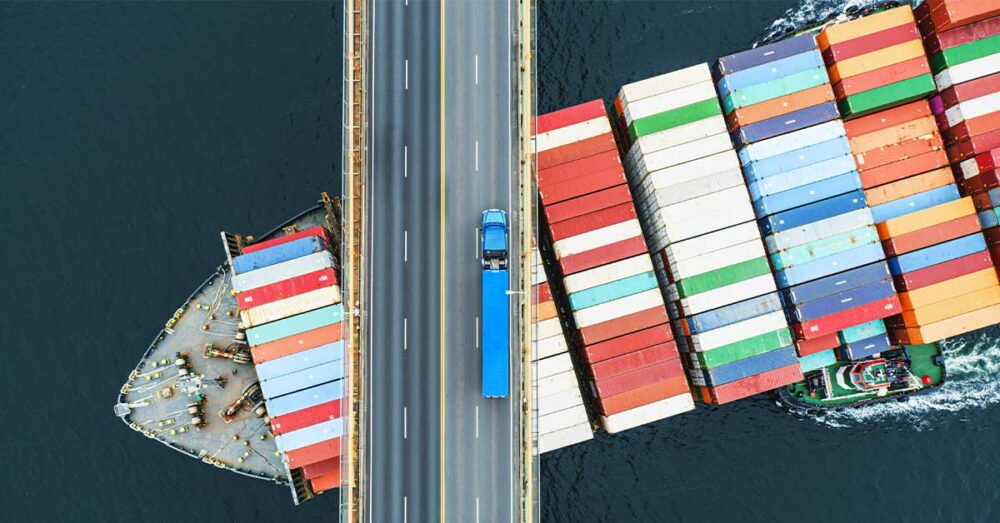Many shippers have realized that working with a third-party logistics (3PL) provider leads to more efficiencies and cost savings. It also allows shippers to focus on their core competencies. But 3PL solutions are not one size fits all. There are a variety of third-party logistics services available, making it particularly important to choose the right one.
At GlobalTranz, we know how complicated this industry can be, so we’ve put together a guide covering everything from defining a 3PL to categorizing services to explaining the various benefits of working with a logistics partner.
What is a 3PL provider?
Defining third-party logistics is complicated. Depending on who you ask, you’ll often get a different definition.
According to the United States Code, a third-party logistics provider is “a person who solely receives, holds or otherwise transports a consumer product in the ordinary course of business but who does not take title to the product.”
But even the legal definition does not define the different types of 3PL providers available and the services they offer.
GlobalTranz defines 3PLs as businesses that provide outsourced solutions for one or more of the following services:
- Transportation or freight management, often including logistics technology and claims services
- Freight payment and accounting
- Public/contract warehousing
- Distribution management
- Freight consolidation
What are the different types of 3PL services?
Below, we’ve broken out what we believe are the main categories of logistics services offered by 3PL companies. Keep in mind that this is just one way to categorize third-party logistics services. A single provider can fall into one or many of these categories.
Transportation-based services
Transportation-based services focused on the transportation of products from one location to another, though they can also extend to offer a comprehensive set of logistics services. These providers will be either leveraged or non-leveraged.
- Leveraged providers use assets of other firms
- Non-leveraged providers use assets belonging solely to the parent firm
Warehouse/distribution-based services
Some providers offer warehousing and distribution services, including storage, inventory management, stock rotation, return services, fulfillment and reverse logistics.
Forwarder-based services
Freight forwarders are intermediaries — typically non-asset owners — that oversee the transportation of products from the initial shipping location to the final destination.
Managed transportation services
Managed transportation solutions offer end-to-end logistics management services. Shippers are able to choose the level of support they need, whether it’s a full logistics outsource or just a segment of their transportation needs.
They provide technology, such as a transportation management system, and integrated freight management services to eliminate heavy processes and cumbersome features, including claims and accounting. They manage carrier relations for ongoing rate maintenance and negotiation. And they provide insights, such as freight data and matrix reports, for better visibility and control of future logistics outcomes.
Most importantly, they act as an extension of the shipper’s team, providing support with supply chain transformation planning, day-to-day execution and strategic recommendations to reduce freight costs and improve operational efficiencies.
Financial-based services
Financial-based services provide freight payment and auditing as well as cost accounting and control. They also offer access to tools for monitoring, booking, tracking, tracing and managing inventory.
Information-based services
These are internet-based providers are primarily focused on business-to-business (B2B) operations. They use electronic markets for transportation and logistics services.
How can a 3PL company help your business, and how do you know which one is right for you?
Choosing to work with a 3PL provider will help with alleviating day-to-day stresses and creating a logistics strategy that will lead your business to long-term success. Some of the immediate benefits include:
- Lower costs: Get competitive rates by leveraging the size and scope of offerings and reduce your overhead costs associated with operations, billing, accounting, HR, IT and more.
- Consistent capacity: Tap into a network of multimodal carriers that are sourced, qualified and managed by your provider.
- Visibility and reporting: Track shipments more easily and get automated reporting and back-office support.
- Consultative partnership: Gain a partner with industry expertise that can help create a bespoke solution.
When it is time to choose a partner, first identify your needs and priorities. It helps to distinguish your business goals for the future and logistics KPIs that support them. If you’re only looking for a partner that can store and ship products and handle returns, then a warehouse-based logistics provider may be right for you. Do you need to move ad-hoc shipments at unpredictable times? A transportation-based provider could be just the fit. If you have gaps in accounting and auditing, look for a financial-based company. And if you have a variety of logistics needs and you’re looking for a partner that can help define your strategy and scale with you, then find a partner that offers managed transportation services.
Where does GlobalTranz fit into the 3PL logistics landscape?
We offer full-service managed transportation services, with a focus on long-term strategy. But our logistics solution isn’t one size fits all. We work with shippers to build a strategy that fits their needs, whether it’s a full outsource of their logistics operations or just a segment of their transportation needs.
GlobalTranz service offerings
- Managed transportation
- TMS technology
- Supply chain optimization solutions
- Project Logistics
- Dedicated fleet solutions
- Multimodal services, including LTL, truckload shipping brokerage, final mile delivery, expedited & air, intermodal rail, parcel & small package and international air & ocean and cross-border
We bring award-winning customer service, exceptional industry expertise and market-leading technology to the table for shippers. Our customers benefit from reliable capacity, expert support and technology-driven agility. To find out if GlobalTranz is the right partner for you, reach out and speak with an expert today.

